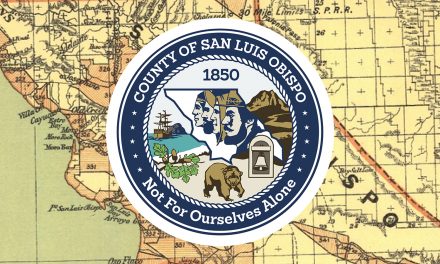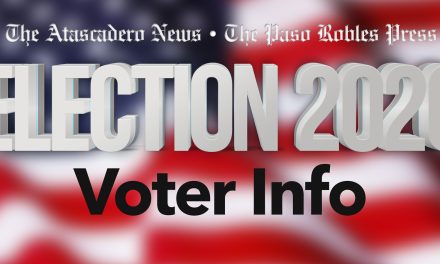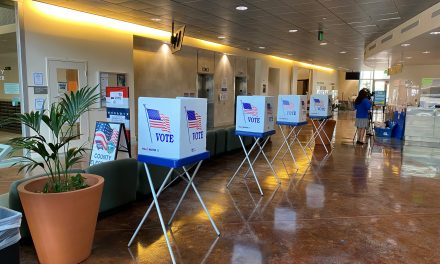In an unprecedented year, election pressures call for unprecedented national restraint
In the aftermath of an unprecedented United States election, conflicting reports and allegations circulate mainstream and social media channels with a furor of dissenting views surrounding the outcome of the highest seat in the nation.
In advance of the election, Chris Wallace pressed the candidates for each major party during the nationally televised debate on Sept. 29 about claiming victory early. With the unprecedented volume of mail-in ballots, concerns over initial count, verification, and ultimately certification were at issue.
Mail ballots require extra time for review and verification, in comparison to in-person voting.
At the debate, Wallace asked President Donald Trump if he would accept the results of the election, to which he said, “If it’s a fair election, I’m 100 percent on board.”
Democratic Party candidate Joe Biden also agreed to comply with the certified results of the election.
Wallace asked Biden, “Will you urge your supporters to stay calm while the vote is counted, and will you pledge not to declare victory until the election is independently certified?”
“Yes,” Biden replied.
In the few days following the Nov. 3 election, most major media outlets called results of the election, but reports conflict on totals. Fox News called Arizona for Biden early, but NBC has not yet called Arizona; RealClear Politics was the latest to call Pennsylvania for Biden, as of Thursday, Nov. 12.
The media has predicted the winners and losers, but a vast majority of states have not certified their results.
Regardless, both candidates have violated their pledges to allow the process to play out — both Trump and Biden have claimed victory prior to the certification of the election.
While mainstream media churns out conflicting reports and information, and social media users distribute what supports their preferred narrative, the human urge to claim victory has prevailed over the conscientious calls for patience.
Regardless of opinion, of which there are a great many on both sides of an unprecedented and record turnout by voters, the election is proceeding slowly, as expected.
The contentious presidential campaigns for each candidate have spilled over into contentious claims post-election. President Trump’s campaign filed lawsuits in Pennsylvania, Michigan, Nevada, Georgia, and Arizona, while Biden’s campaign railed against Trump’s denial to concede the election.
With record numbers of more than 70 million votes cast for each candidate, there are massive crowds on each side awaiting resolution, and neither candidate is calling loudly for patience — mainstream media did not help.
After the events of 2020, patience may be in short supply, but with pending lawsuits — many dismissed, some ruled, a hand recount in Georgia planned, and uncertified results of the election, there is no resolution as of Thursday, Nov. 12.
A brief review of social media shows ardent supporters on both sides of the presidential election that make unsubstantiated claims, bolstered by supporting news articles. Some innocent victims are caught in the crossfire of the fervor.
In violation of their pledges on national television, both candidates have failed to keep their promises to withhold claims of victory, leaving their supporters free to repeat the claims without admonishment.
Biden is currently the “projected winner” of the 2020 presidential election, with leads in many close races in swing states. He is not the president-elect, despite what is being reported or distributed widely in mainstream and social media.
The importance of this distinction is unrelated to who will take office on Jan. 20, 2021. The importance of respecting the rule of law is in consideration to more than 70 million voters on either side awaiting official results — including the resolution of legal complaints.
The legitimacy of the presidential election is dependent on a mutual agreement between the winner and the loser that a fair and free election took place. Wallace acknowledged this circumstance in advance of the election when he asked both candidates of their pledge to wait until election integrity occurred by independent certification — and both candidates agreed.
Pushing beyond the due process with misleading claims, the campaigns of both candidates betray the trust of more than 150 million voters and the rule of law. There has not been a chosen “president-elect,” and while it may be a break from precedence to deny the mainstream media the right to make that call, it is an unprecedented year.
The voters of the United States do not elect or choose the president; neither does the media.
There are 538 members of the electoral college who will gather in mid-December to cast their vote for the next president of the United States. This is the rule of law.
President Trump is taking aim at states where he questions the integrity of the election results and has filed lawsuits accordingly. This is the rule of law.
The results of the election are not yet certified in enough states to declare victory by either presidential candidate. There is no precedent for the 2020 election in terms of the amount of votes to be counted, nor the volume of mail-in votes. There is, however, a precedent for the rule of law in the U.S. constitutional republic, and three branches of government remain intact to serve the People.
Voters on opposite sides of this election see things very differently, but that does not change the law by which the process is managed.
Both candidates pledged to abide by the rule of law, not the will of their respective supporters. With more than 70 million people on either side of the argument, uncertainty demands restraint of the people until the official selection of the next president of the United States.













